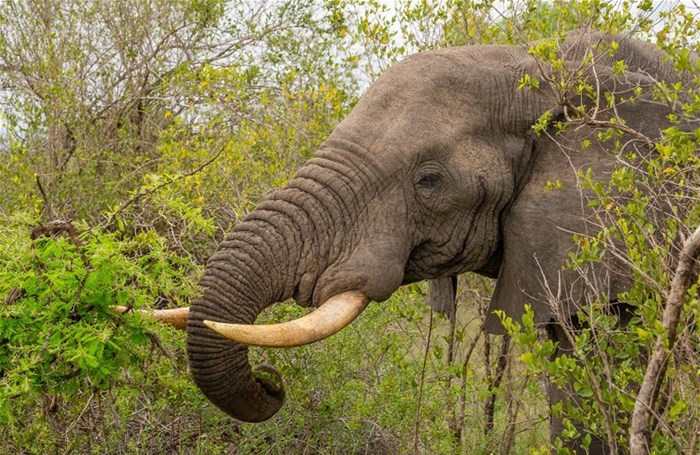Biodiversity is the lifeblood of our planet, supporting all forms of life. From the air we breathe to the food we eat, ecosystems teeming with animals, plants, and microorganisms provide us with essential services. Nature holds immense value, and while we may instinctively appreciate some aspects of biodiversity more than others, all of them are important.
Take pollinators, for example. Birds, bees, and insects are critical for a third of the world's crop production. Invertebrates maintain soil health, crucial for agriculture. The oceans serve as a primary source of animal protein, while trees, wetlands, grasslands, and coral reefs slow down water, shield coastlines from storms, absorb carbon dioxide, and purify the air we breathe. Not to mention the countless medicines and chemicals derived from plants.
But here's the grim reality: humanity's impact on the environment has caused global warming of 1.1°C since the industrial revolution began, according to the Intergovernmental Panel on Climate Change. This has resulted in increasingly frequent and extreme weather events, wreaking havoc on people and nature worldwide. Just look at cyclone Freddy, which devastated Malawi, Mozambique, South Africa, and Zimbabwe, claiming hundreds of lives. It's a stark reminder that despite some progress in reducing climate risks, we remain ill-prepared for the existential threat posed by climate change.
However, all hope is not lost.
Businesses such as Kruger Gate Hotel are gearing efforts behind preserving the natural ecosystems in which they operate.

Anton Gillis, CEO at Kruger Gate Hotel
"As a hotel operating in the heart of Kruger National Park, it's our responsibility to protect the environment that sustains us. Preserving the biodiversity of the region isn't just good for the planet, it's also good for business. We have noticed a significant shift in the demands of our corporate clients, who increasingly expect us to showcase how our sustainable initiatives are practically being implemented on our property during the bidding process. More importantly, we want the great grandchildren of our guests to not only know what a rhino is from a textbook, but to experience the awe-inspiring sight of these magnificent creatures in person, roaming freely in Kruger National Park. Preserving biodiversity is our legacy, ensuring future generations can experience the wonders of nature," says Anton Gillis, CEO at Kruger Gate Hotel.
Covering an expansive area of 19,485 km², Kruger National Park is one of Africa's largest game reserves, teeming with an extraordinary array of plant and animal species. It boasts over 2,000 plant species with 336 tree species, 500 bird species, six of which are known as the Big 6 and are native to the area. And, of course, it is also home to the beloved Big 5. The park also accounts for roughly half of southern Africa’s known insect species, which totals at around 20,000 insect species. This carefully balanced ecosystem is a prime example of how biodiversity can thrive when conservation efforts are taken seriously.
Kruger National Park is also an important conservation area. The South African National Parks (SANParks) management team works tirelessly to protect endangered species, combat poaching, and mitigate human impact. Notably, the SANParks Honorary Rangers' Conservation Services National Project provides essential counter-poaching support to the park's joint operation centre, a collaborative effort involving various sectors and agencies. Additionally, the park's management implements programs to control invasive species, conducts research and monitoring, and makes informed decisions to preserve this complex ecosystem.

"We are immensely grateful to SANParks for their unwavering dedication to preserving the park's ecosystems and wildlife. We recognise the crucial role that they play in maintaining the balance of nature in this unique environment. Our team is committed to working closely with SANParks to ensure that our operations continue to have a minimal impact on the park's delicate ecology, and that we are doing everything we can to support their conservation efforts," says Gillis.
Whilst many hotels in the region have embraced sustainable practices, such as using renewable energy sources, reducing waste, and minimising their environmental footprint, they can go beyond just adopting sustainable practices and educate both guests and staff about the importance of biodiversity and environmental protection.
Gillis emphasises the significance of educating staff in supporting wildlife conservation efforts. “Kruger Gate Hotel recently partnered with Access Professional Development to provide comprehensive training in snake identification, handling, and snakebite treatment to our onsite staff,” he shares. “This exercise was more than just a measure of safety; it's our way of ensuring that we can coexist harmoniously with the diverse wildlife of Kruger National Park and actively contribute to their protection,” he adds.
Lastly, when visiting Kruger National Park, it's essential for travellers to understand their responsibility to protect the environment. By following the park's rules, staying on designated paths, and not disturbing wildlife, visitors can minimise their impact. Choosing hotels and tour operators that prioritise sustainability and making donations to conservation organisations further contribute to ongoing efforts.
“By joining forces, hotels and travellers alike can ensure that this precious ecosystem continues to flourish for generations to come. It's a collective effort that holds the power to preserve and celebrate the wonders of biodiversity in Kruger National Park, setting an inspiring example for the world. Let's rise to the occasion and make a difference together,” Gillis concludes.






































